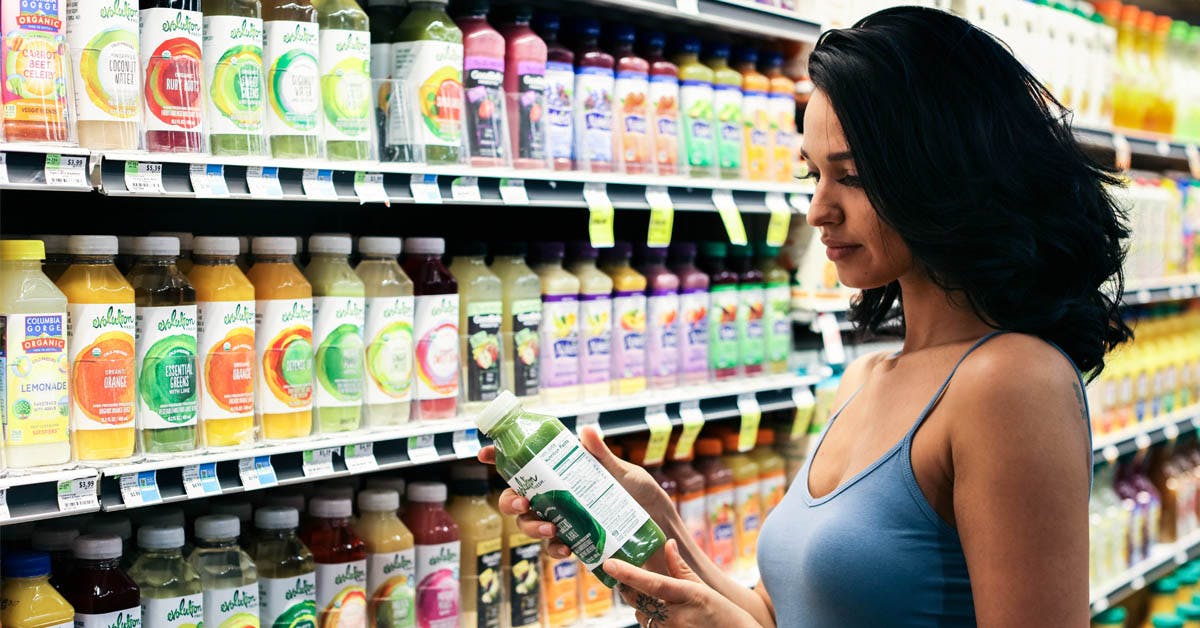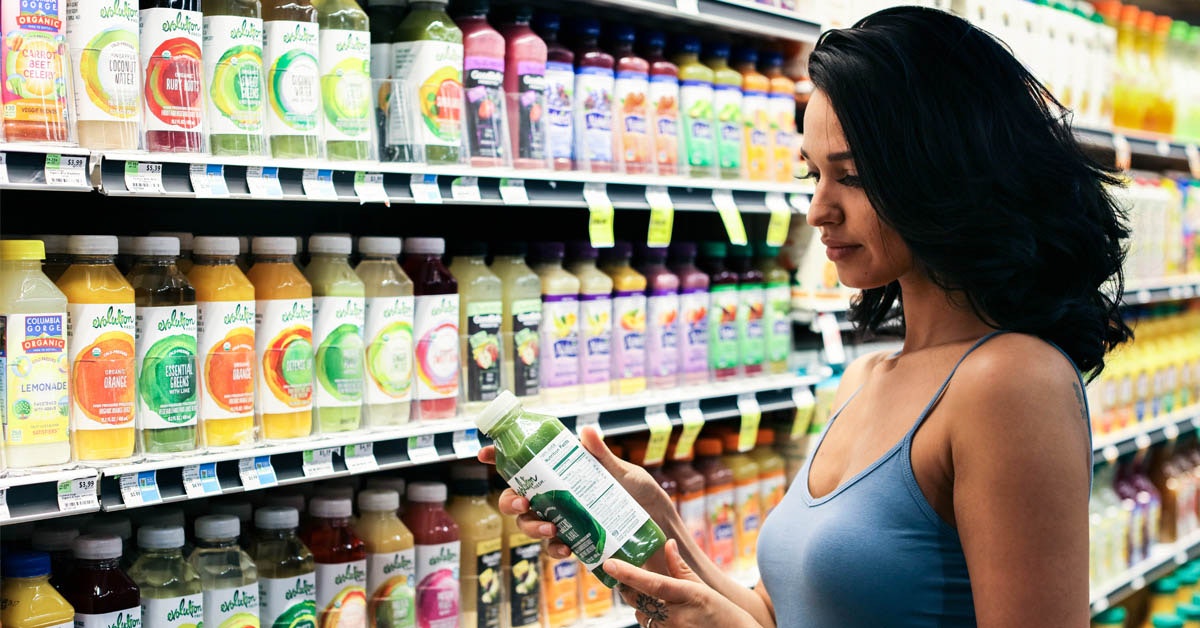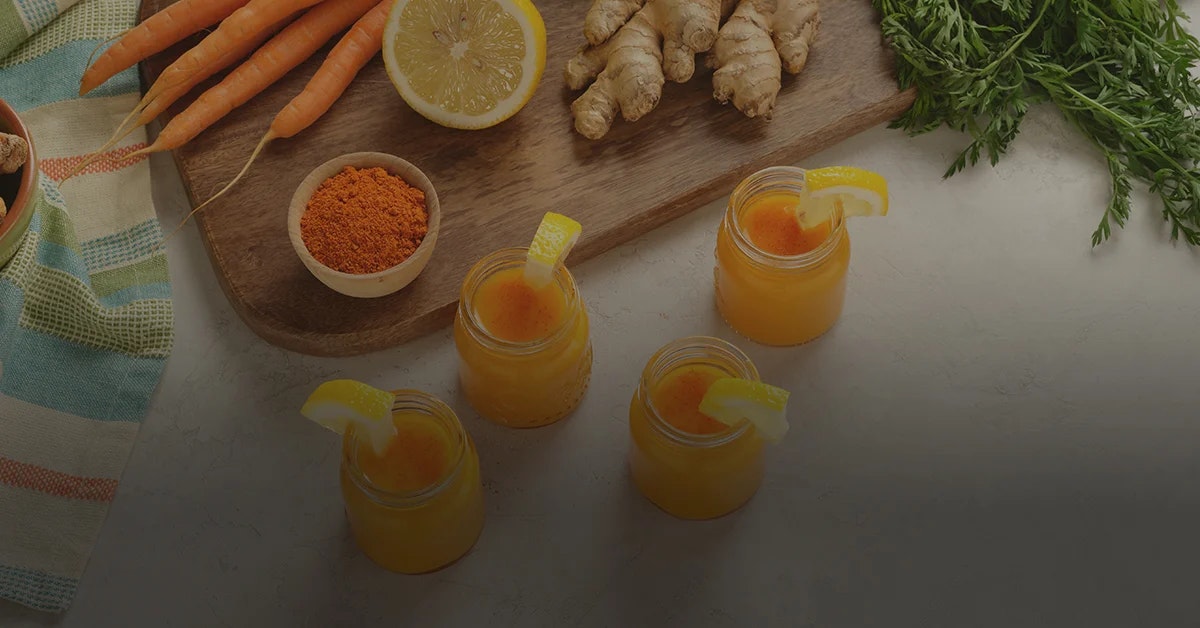Did you know that juice companies are legally allowed to label the juice as “raw” even if it’s not? That’s because there’s no “standard of identity” for the term “raw” under FDA guidance.
Additionally, businesses are not required to label if the juice has been pasteurized or HPP’d, since processing steps don’t need to go on the label.

Six Ways To Tell That Juice Isn’t Actually Raw:
- The juice isn’t refrigerated at the store. Shelf stable juice must be heat pasteurized.
- The lid is one of those Snapple-type lids that “pops” when you open it. This is an indicator that the juice has been “hot filled” in the bottle.
- The expiration date is more than a week from the day you purchase it. The maximum shelf life for raw cold pressed juice is 7 days, and even that is pushing it (3-5 days is standard)! If it’s longer than that you can bet it’s been processed to extend the shelf life.
- The juice is labeled as “cold pressured” instead of “cold pressed”. “Cold pressured” is a tricky term invented by the HPP term industry that sounds a lot like cold pressed, but they use it to mean high pressure processed.
- The juice brand is a wholesale / national brand. Companies that sell their juice wholesale to grocery stores are required by law to process the juice via HPP, Pasteurization, or UV.
Pro tip: Raw juice is not technically allowed to be sold for wholesale distribution in the US. However, it’s worth noting that not all regions of the US enforce this regulation. So, if you’re shopping at a small, local grocery store or café, it’s possible that they are re-selling actually raw juice made at a nearby juice bar. Always ask if you’re unsure. - The juice is made in a far-away place. Raw juice is not going to be transported very far. So if you’re in Texas buying juice made in California, you can bet it’s not raw.

Beware of Marketing Terms
Some brands may not actually label the product as “raw”, but might use some labeling tricks to signal that it’s raw when it’s actually not. Here are some common labeling tricks:
- “Cold Pressured” as described above.
- “Made from raw ingredients” – uh… duh! All juice is made from raw ingredients. It doesn’t mean that the juice hasn’t undergone extra processing since it was made.
- “Consume within 3 days after opening” – This is a great way to signal that the juice has a 3 day shelf life when in actuality, it might expire in 60 days. Check the printed expiration date on the bottle (it might be harder to find).
- Using the word “raw” when describing other things, other than the juice itself. For example, the word raw might be in the brand name itself. Just because the brand has the word “raw” in it, doesn’t mean the product itself is raw. Tricky!

Ok, So How Do You Know If the Juice Is Actually Raw?
This one is easy – buy from small, local shops where you can see them making the juice! If you’re unsure, ask them where or how the juice is made. If they aren’t making it on-site (or nearby), you can bet it’s not raw.
Bonus: How to know if the juice is actually cold-pressed
Ask the juice bar what brand of machine they use to make the juice. If they use a Goodnature machine, you know it’s actually made in a real juice press. Check out the Goodnature Difference to learn more.
Comments
Pls qoute on your small machine
Hi Alan,
One of our team members will email you shortly, thanks!
Very very insightful article
Excellent article. I think I am going to print it out and actually put in on a wall for customers to read.
Love the articles and shared recipes/resources. This article seems to pit us against eachother. There are many HPP truly cold press juices that use Goodnature (including Evolution Fresh, pictured that I believe has Maximizeres in their plant) equipment. I am a little taken aback by the suggestion that juices that are processed to extend shelf life and improve food safety are using "tricks"
There are many benefits to both Raw and Cold Pressed with UV and HPP supported processes.
Thank you for the continued content. I just wanted to share our perspective as a long time supporter of Goodnature and Cold Press.
Thank you
Sarah
Hi Sarah,
Thanks you for the honest feedback. The "tricks" I refer to in this article are about labeling juice as raw when it's been processed with HPP or pasteurization, not about the act of using HPP itself. I don't have anything against HPP - it's a great way to. make juice safe and extend shelf life, much better than heat pasteurization. I do have issues with the labeling tricks I wrote about. For more context about my viewpoint of HPP check out my other article The Truth About HPP Juice.
Evolution Fresh is a great brand that has always been up front and honest about using HPP. They don't using any labeling tricks that I've ever noticed. The photo chosen wasn't intended to imply otherwise - it's just a photo in our library we have of someone studying the label on a bottle of juice.



Comment